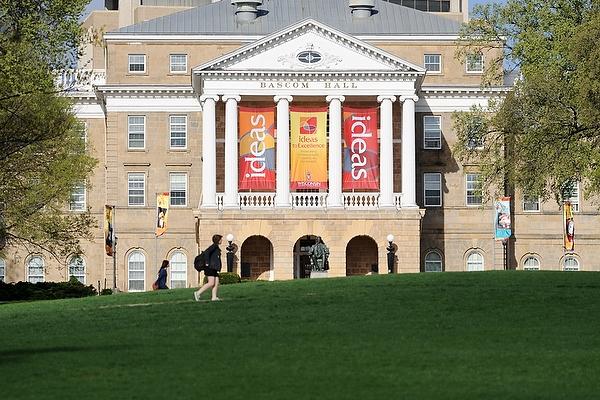There are two worlds at the University of Wisconsin that often overlap and intersect: the mainly white students coming from the middle to upper-class and — to overgeneralize — everyone else.
While these two groups intersect, they are not interwoven; preconceived notions people hold are not fully challenged, which doesn’t follow the Wisconsin Idea of influencing and improving the lives of all people.
What’s troubling about the diversity issue at UW is that it’s an issue at all. Madison is viewed, by Wisconsinites and Americans, as one of the most progressive cities in the nation. Naturally, you would think the campus would be an inclusive, diverse place. But that’s not the case.
Significantly underrepresented populations are black and Hispanic students, making up 2.1 percent and 4.8 percent of students respectively. U.S. census data from 2010 shows black people compose 13.2 percent of the population and Hispanics, 17.4 percent.
But, what’s worse than underrepresentation is exclusion.
Unfortunately, we, as a student body, are withholding ourselves from having plethora of positive effects. When 98 percent of your friend group is comprised of people who come from the same background, that is a problem.
The homogeneous nature of your relationships allows for preconceived notions and prejudices to fester. The man in charge with helping defeat these types of scenarios, University of Wisconsin Diversity and Climate Vice Provost Patrick Sims addressed the Associated Students of Madison Oct. 21 about the state of diversity and inclusion on campus and said, “Students of color are being referred to with hateful language cloaked in superiority.”
This, in part, is due the the lack of inclusivity on campus.
This problem of friend groups that lack any sort of diversity is not a problem limited to UW — it’s ubiquitous. A study published in 2011 by the University of Kansas showed that at large campuses, with 25,000 or more students, people choose friends that have beliefs, values, attitudes and personalities more closely aligned to their own than those at smaller colleges and universities.
Ultimately, we are just perpetuating a nationwide problem that plagues other larger campuses. It has been proven that integrating diverse groups brings many benefits to society and individuals. A brochure produced by UW’s Women in Science & Engineering Leadership Institute titled “Benefits and Challenges of Diversity in Academic Settings” has already shown there’s plenty of benefits to an inclusive, diverse student body.
Compiling data from a bevy of diversity in education studies, the brochure states that meaningful interactions between diverse peoples has positive effects on cognitive development, growth in motivation, academic skills, critical thinking and intellectual engagement.
If we know the benefits of an inclusive student body, why isn’t this already in place? Sims and others at the Division of Diversity, Equity & Educational Achievement are charged with finding an answer to this question.
Two new initiatives this year are the Diversity Inventory Project and a campus-wide diversity climate survey. These initiatives are being added this year to help foster inclusion of diverse people on campus.
The campus-wide survey will establish a baseline as to where UW is at in terms of inclusion. The project will determine if inclusion programs are accomplishing their goals.
There are two facets in challenging the two-world story. First is awareness, the recognition of diversity on campus, and second is inclusion, the integration of a wide range of people.
Inclusion overcomes prejudice. Awareness continues one’s preexisting notions. We all are responsible for forwarding the two-world narrative, merely by being aware of the many different types of people around us.
A collective effort is needed to overcome these divisions within our student body, moving to an inclusive atmosphere where we all reap the rewards of a diverse campus.
Aaron Reilly ([email protected]) is a freshman majoring comparative literature and Russian.




















